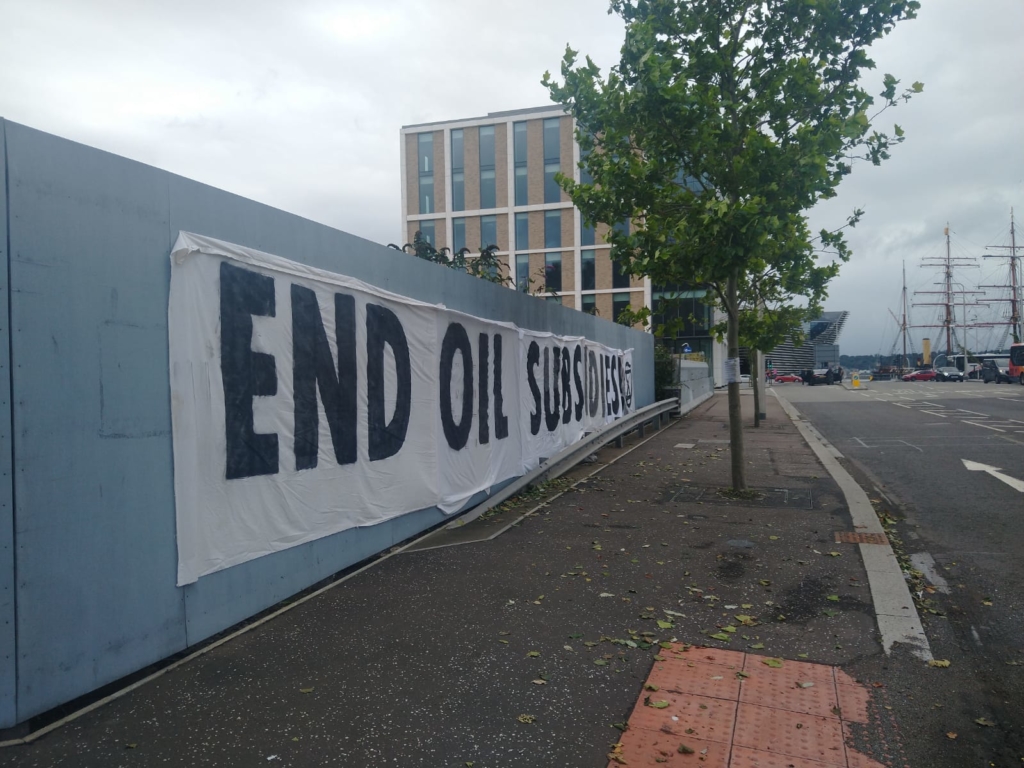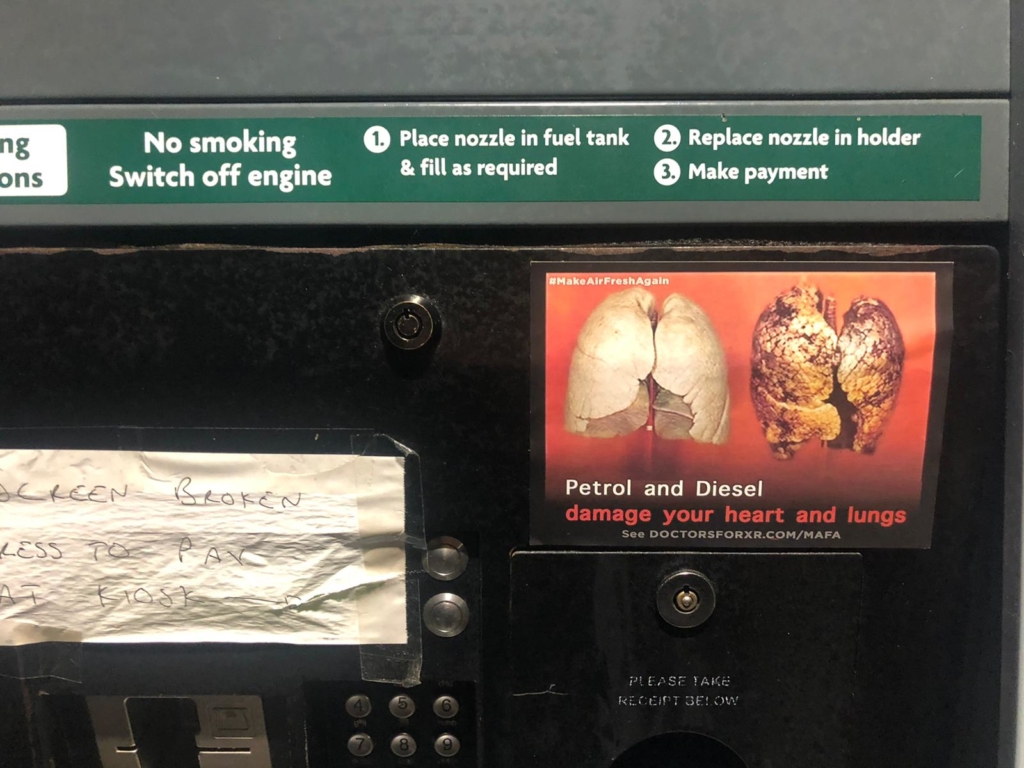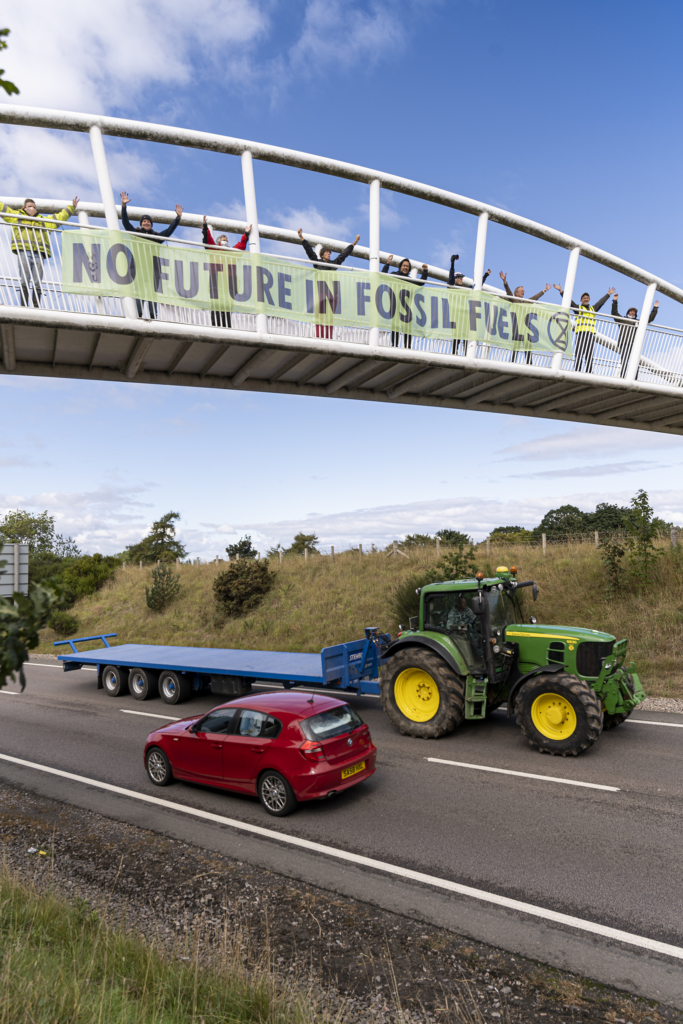The £7.2 Trillion Opportunity

The corona virus isn’t the real emergency.
In a report published on Thursday, the International Energy Agency set out the first global blueprint for a green recovery, focusing on reforms to energy and consumption.
“The next three years will determine the course of the next 30 years and beyond” stated Fatih Birol, executive director of the agency. “If we do not [take action] we will surely see a rebound in emissions. If emissions rebound, it is very difficult to see how they will be brought down in future.”
Carbon dioxide emissions plunged by a global average of 17% in April this year, but have since surged again to within about 5% of last year’s levels.
“This year is the last time we have, if we are not to see a carbon rebound,” said Birol. The IEA calculates that governments are planning to spend $9tn (£7.2tn) globally in the next few months on rescuing their economies from the coronavirus crisis. How they spend them is critical to our future, or whether we have one.
This week major actions by Extinction Rebellion have brought the centres of London, Cardiff and Manchester to a standstill, now direct action targeting banks, aviation and the fossil fuel industry are taking place across Scotland.
Scottish action began on the 27 August, with warning labels appearing on petrol pumps in Glasgow, Edinburgh, Dundee, and East Dunbartonshire as part of a national campaign led by Doctors for Extinction Rebellion, calling for greater transparency about the damage to health caused by fossil fuels.

Dr Sian Ashby, local GP and Extinction Rebellion Scotland activist said:
“We know that air pollution damages health throughout the life cycle: stunting the growth of babies in the womb; increasing rates of asthma in children; and causing lung cancer, heart attacks and strokes in adults. Climate change too has catastrophic health effects, with many people across the world already suffering the consequences of drought, flooding and extreme weather events. As health professionals, we have a duty to protect the lives of our patients. The Scottish Government must urgently transition away from fossil fuels towards renewable energy sources.”
Banners were also dropped in Inverness, Forres and Dundee (28 August), reading NO FUTURE IN FOSSIL FUELS, END OIL SUBSIDIES, 2045 IS ECOCIDE and DAN SAYS ITS DESPERATE – heralding more action in the coming days.

Today, XR Dundee are heading to Dundee Airport, highlighting the absurdity of Dundee Council’s suggestion of expanding the airport as part of its green recovery plan. Aviation emissions are forecast to double or even triple over the period of the next 30 years, with no sign of slowing down.
“During the Covid pandemic, we’ve experienced an appalling failure by the UK government to keep us safe in the face of one emergency. We’ve seen worsening health, both physical and mental, increasing inequality and a total disregard for our well-being both now and in the future. The climate crisis will, unless it is properly addressed, cause even more damage and suffering to ordinary people and their families. We know that there are solutions, positive changes that our fellow Dundonians want to see. That’s why we’re giving up our time and energy to make our voices heard this weekend.”

XR Forres banner drop A96
On Monday 31st of August, XR Highlands and Islands will descend on HSBC, Barclays and Santander on Inverness High Street, demanding these high street banks clean up their act and stop funding fossil fuels production.
Between 2016 – 2019 Barclays provided finance of £91 billion, HSBC £67 billion and Santander £19 billion for fossil fuel industries. Globally banks have financed fossil fuels with $2.7 trillion since the 2015 UN Paris Agreement when it was agreed to limit global heating to 1.5C above pre industrial lev-els. Furthermore, fossil fuel lending and underwriting is increasing every year. [2]
Scientists calculate that global carbon emissions must be cut by half by the end of this decade if humanity is to have a reasonable chance of keeping temperature rises below 1.5C. Beyond which even half a degree will significantly worsen the risks of drought, floods, extreme heat and poverty for hun-dreds of millions of people. In 2019 The Greenland ice sheet has melted at record levels, equivalent to 1 million tonnes of ice per minute. If it melts completely sea levels will rise by 6 metres. As this continues it will lead to rising sea levels putting lower level communities around the coast of Scotland at risk.
Gary Jack of XR Highlands and Islands says “These financial institutions outlast governments and let small unrepresentative groups make huge decisions for us and the planet. Without funds from high street banks, the climate destroying activities of corporations like BP and Shell are not possible. Therefore it is down to us to ensure our banks divest from fossil fuels and if they don’t, then bank with ethical banks that do.”

Mike
Can you tell me what subsidies (if any) the UK upstream oil and gas business receives? I am interested to know because I would love to get some!
William
@William Ross, what is the CIA oil dividend?
Good question Sleeping Dog. Beats me. Maybe its part of some conspiracy theory.
Fossil Fuel energy is being propped up by banks and by governments even though Green Energy technology could and should be able to provide everyone electricity at competitive prices per KWh.
Historically it is understandable that if electricity is produced by means of fossil fuels the cost of fossil fuels adds to the production costs, hence gas energy prices per KWh have always been significantly cheaper than electricity energy prices per KWh. Since the 1970s and North Sea Gas was discovered, gas has been provided cheaply because it had to be used, there was too much to store! This was a factor in the decline of coal (coal could remain stored in the ground until required) as gas fields were brought on stream.
Today fossil fuel energy still remains vastly competitive compared to the renewable green energy. This is something our government should address through taxation and not leave entirely to market forces and fixed VAT rates irrespective of fuel type being used.
Fossil fuels have historically helped us all to progress and should continue to provide an alternative or backup as we seek further advances. If we are to progress using green energy, electricity prices must be extremely competitive compared to other fuels. Our government could be a lot more creative in how it taxes energy and in the same process build in disincentives from using above average domestic energy use.
For over 100 years the American Dollar has been a worldwide currency through Petroleum. Perhaps Scotland could resolve its independence currency issue through it’s natural energy.
Daer Blair
Thanks for your contribution. I cannot agree with you on all points.
There are two kinds of fields producing gas: associated gas fields ( meaning the gas is produced along with oil) and non-associated gas (meaning that the hydrocarbon flow is either entirely or largely gaseous). Oil fields very often re-inject surplus gas for secondary recovery or flare/vent it if there is no market or no available evacuation route. It is now much more difficult to flare/vent.
Non-associated gas fields will normally only be brought onstream if there is an available market. However, you are right in concluding that the UK has very limited gas storage away from the fields themselves. Remember that we also have very substantial gas imports mainly from Norway ( Langeled) and the Continent. The price of gas is currently very cheap ( too cheap for my liking!)
You say that:” Today fossil fuel energy still remains vastly competitive compared to the renewable green energy.” You never spoke a truer word. Electricity prices are far too high and the old and the poor are suffering from this and even in some cases dying. This is all down to senseless renewables mandates. I am not sure how you would solve the problem with taxation? Oil companies in the UKCS ( offshore) currently pay a 40% tax on gross profit which is more than twice the tax burden of the heavily subsidized and mollycoddled renewables sector. Higher taxes will simply reduce UKCS exploration and appraisal and hence production. That means we simply import more hydrocarbons. Not a great idea I don’t think?
There was a day when Scotland’s energy riches could have supported a Scottish Pound ( the early 1980s) but I afraid that that day is long over.
Regards
William
William,
I believe that the government could redesign tax policy given the advances in information technology. Taxes could be charged at personal level in a similar way to income tax: The tax would vary depending on individual choice and actual energy usage.
The complexity of governing has to date prevented our government from introducing such a rule based system approach because of the cost of managing it, but IT limits the reoccurring costs.
Currently companies employ people directly but what would happen if companies employed people by hiring them from the state? Everybody could receive a basic income from the state, but there is nothing stopping companies taking on this cost and improving it for people who are going to make that company more profitable. Company owners could be free to employ people not native from the state if they so desire but they must pay the state for the privilege: The state must profit from such employment in addition to the employee via a personal income tax.
The state has to be funded fully by all the income generators if the state is to protect all it’s inhabitants: the keys to success is productivity, efficiency and knowledge not competition and market forces.
There is massive scope for improvement how governments work. BREXIT and Scottish Independence has come about by voters dissatisfaction of the way things are.
If we are to keep our politicians actively engaged and improve the life chances for everyone, then we need to restructure how we do things better together.
I can envisage a system that starts with having a fully elected House of Lords & Scotland making a real difference to the idea of a different way of governing.
Interesting times may lie ahead.
This article ( 3 years old now) suggests that the UK tax payer does not get a good return from UK Oil & Gas compared to Norway’s fields. E.g Norway’s income £29 thousand million v UK income of minus £23 million for the same period.
https://www.businessforscotland.com/uks-oil-gas-revenues-dwarfed-norways/
Maybe the way we do things here isn’t very efficient? I heard on a radio programme that very few countries’ citizens actually benefit from native oil resources; Norway and Saudi Arabia being notable exceptions.
Another source (2015) reaching the same conclusion that UK tax payers have been short-changed by our approach to oil extraction.
https://resourcegovernance.org/blog/did-uk-miss-out-£400-billion-worth-oil-revenue
I’m not sure if I should post this, but I’ll go ahead anyway.
We reached +1.5*C average global warming above the 1750 baseline in July 2020.
One of Paul Beckwith’s recent videos showed a graph from James Hansen no less, showing we are at +1.2*C above the 1880 baseline. It is generally recognised that to get to the proper 1750 baseline, you add +0.3*C to that figure. A paper released (covered by Beckwith) last month shows the Arctic has been increasing in average temperature by 1-2.5*C per decade for the last 4 decades. So although the planet has warmed +1.5*C overall, the Arctic has one spot that is +10*C, the rest varyng from +4*C to +7.5*C.
A peer-reviewed theoretical physics paper released in May 2020 shows we have a 90% chance of collapse of global industrial civilisation within 2-3 decades, just by measuring population growth and deforestation rates:
https://www.nature.com/articles/s41598-020-63657-6
reported here:
https://www.vice.com/en_uk/article/akzn5a/theoretical-physicists-say-90-chance-of-societal-collapse-within-several-decades
That’s without any input from climate catastrophe whatsoever.
Any “Green New Deal” is an extension of business as usual. You cannot make, set up and repair renewable infrastructure without fossil fuels. Sure, you can replace all electricity use with renewables, but electricity only accounts for 20% of our energy use. Sure, you can have electric cars, but you can’t replace the 1.4 billion existing cars world wide one-for-one with electric ones, there simply isn’t enough of the materials required, and even if there was, you’d be using fossil fuels to mine them. The biggest myth out there is that you can opt out of fossil fuels and opt in for renewables as two separate items.
On average the fossil fuel industries receive worldwide $5trillion a year, it’s not just from the banks. Many of these subsidies are for exploration of new resources. In 2019 Exxon Mobil for example sank no new wells despite this.
Annual profits of those industries, obscene though they are, don’t reach a quarter of that annually. In other words, if you took all the subsidies away, the entire industry would go bankrupt within 3 months. All governments would be forced to nationalise their energy industries (which is no bad thing) or face total collapse of the supply and distribution system.
Suggested learning:
The exponential function.
EROEI (energy return on energy invested).
Techno-Utopianism.
Degrowth.
50% of all man-made carbon emissions since 1750 have been in the last 30 years.
Renewables account for about 3% of worldwide energy use. These didn’t replace any fossil fuels, they merely added to the total energy use.
During the last decade fossil fuel use worldwide increased by 65%.
Between 1970 and 2014 60% of all wildlife has been extinguished from the planet.
There is a mis-conception that climate change is causing collapse. In fact the opposite is true. Collapse of Global Industrial Civilisation (COGIC) has caused climate change through overshoot. Now Abrupt climate change has become a positive feedback loop to COGIC and is accelerating the existing trends exponentially.
Historical tipping points were the oil crises of c1972, when the average EROEI of oil dropped from about 50:1 to c25:1 – in other words we had finished off all the easy to get oil. For me the next tipping point was in 1976 when some stupid US judge granted corporations the same rights as humans.
Suggested reading:
Overshoot, William Catton (1982)
The Limits to Growth, DH Meadows (1972)
How Everything Can Collapse, P Servigne & R Stevens (2020)
On the Future, Martin Rees (2018)
The Uninhabitable Earth, David Wallace Wells (2019)
The Patterning Instinct, Jermey Lent (2017)
The Long Emergency, James Howard Kunstler (2005)
https://consciousnessofsheep.co.uk/
https://bsidneysmith.com/writings/essays/all-the-bunnies-in-the-meadow-die
Sorry, not very helpful to the hopium of infinite growth on a finite planet.
However I do like Blair’s comment below: “Everybody could receive a basic income from the state” is an important starting point for an intermediate phase until money becomes worthless as a concept, so that we can go on to learn to live with less in a world that will have intermittent energy supply, unstable climate and unpredictable food supply.
How does this fit into Scottish Independence?
Scotland will gain independence, I think I’ve said on other blog posts here, simply because the Westmonster Village is repeating the patterns of empire, trying desperately to retain control as overshoot comes home to roost. History shows that as the edicts, dictakts and shrill voices increase from the centre, the reduction in EROEI prevents the centre enforcing those edicts – the maintenance of the existing infrastructure becomes more and more costly, leaving less and less to pay for enforcement
an example here:
https://www.msn.com/en-gb/news/uknews/debate-is-it-time-to-scrap-britain-s-tanks-or-are-armed-forces-being-eviscerated/ar-BB18mc71
– then the peripheries eventually get ignored, neglected then abandoned, and those outer regions start making and implementing their own rules. If Scots en masse simply refused to obey the edicts emananting from the proto-fascists in London, I’m not convinced London has the economic left over resources to do anything about it. Part of the problem I reckon is that the SNP, as Craig Murray shows, is in fact part of the Westmonster Village. That I feel is something Scots wanting independence really have to sort out.
So Scotland will get independence, by default, within 20-30 years, but it will be at a lower level of civilisation than you (or anyone else in the northern hemisphere) currently have. The trick then is to get that independence through managed planning rather than through the chaos of abrupt climate change being a positive feedback loop accelerating COGIC.
There, I said it. If you think it’s hogwash, do the maths. Infinite growth on a finite planet is mathematically impossible, despite what economists, the MSM and politicians may tell you.
Thanks Mark.
Mark,
1750 was the height of the mini ice age.
If base year was 1050 (the height of the warming period of the middle ages) when global tempertures were 1oc higher than they are today then you may come to a different conclusion about the ‘catastrophe’about to engulf us.
The medieval warm period was local to certain Northern latitudes only and wasn’t a period of any significant “global” warming. The mini-ice age of 1750 was a global phenomenon.
Mark, you said: “..For me the next tipping point was in 1976 when some stupid US judge granted corporations the same rights as humans.”
Can you say more about this? What was the case called?
I have long thought that making corporations into “people” is one of the great evils that are undoing our civilisation. I’d assumed it was a much older construct than the 1970’s.
Another “evil” for me, is the ability to buy and sell shares in a company or commodity instantaneously. A third might be the ability to move vast sums of money globally and hide it in tax havens. I sometimes wonder if being able to “own” land is another.
Wul
Thanks for your contribution. I would not attempt to reply to the Business for Scotland article which is pure hogwash. Kevin Hague ( whatever else you may think of him) is spot-on in this demolition. https://chokkablog.blogspot.com/2017/08/the-big-lie-about-scotlands-oil.html
However, your second article is a nuanced and interesting analysis. There are a couple of really big differences between the Norwegian offshore and our own and the article does highlight these. Firstly, Norwegian production, which is roughly double ours comes from around 90 fields whereas ours comes from over 300. The largest and most valuable Norwegian field, Troll, is currently worth the value of the biggest 25 UKCS fields put together. Reservoir targets in Norway are much better than our targets on this side. For most of the journey, tax was at about the same level in the UK and Norway and at times UK tax was actually higher. Recently, of course, UK tax has dipped much lower, but it probably had to, to attract exploration and appraisal development into smaller more complex reservoirs. Even with our low tax the UK seriously lags on E&A drilling.
The article also highlights that Norway tended to reach its production highs during times of high oil prices and the UK the converse. With the big discoveries in the 1960s /70s and Norway’s tiny population, it could afford to develop oil reserves slowly. The UK was different. It prioritised energy security, production and revenue-raising especially in the 1980s.
The big difference is the level of direct state involvement. Perhaps the Britial/BG privatisations were a mistake in hindsight.
Regards
William
Thank you for that William. It is good to have alternative views on these assertions about our oil revenue.
Wul
I could not help reading your response to a post by Mark Beavis.
I wouldn’t take Mark too seriously. Corporations have had personal corporate identity since the early 19th century or before. Thus shareholders are only liable to contribute to companies they own shares in up to the “par value” of their shares. They are not liable for the debts of the company. This is absolutely vital for the capital-raising process. There is nothing evil about it.
Secondly, without being able to buy and sell shares and commodities instantaneously our modern world would cease to exist. Without such an ability you would decimate global trade and destroy investment incentives.
Lastly, without land ownership, you would destroy every advanced economy including Scotland’s. That is because we raise capital through land ownership. Read De Soto’s “The Other Path” in which he talks about the problems the poor of the world face. The key problem, he thinks, is that poor people have no legal title to the land they live in. I know that from ten years lived in Latin America. Slum-dwellers have no security of title. They, therefore, cannot raise capital.
These are not popular views on Bella. Sorry.
William
William, I appreciate that suddenly removing the foundations of our modern world would destroy it. I was bemoaning the long-term outcomes of the “evils” I listed rather than suggesting we tip the whole world on its head.
I own both shares and property so I’d be in trouble if they were done away with overnight. Likewise I am sure that I benefit in many ways from companies that have limited liability; e.g. who would take the risk of starting a railway if they had to personally compensate the victims of the first derailment?
However I think that creating fictitious, legal “persons” ( a company) which then has the “right” to make a profit (even at the expense of people’s health) is a very bad thing. Also bad that company directors can act in negligent ways (e.g. Bohpal dister) but be free of personal responsibility for their actions and decisions. There are a lot of bad people hiding from responsibility/prison behind corporate protections.
The land ownership thing; it may be better if we simply rented land from the state for a specified term and usage. Human beings “owning” land is a kind of absurd notion. Most first nation people’s “get this”. Conditional on leasing land could be a promise to return it in an agreed condition e.g. empty of coal but with rivers and watercourses still clean and plugged and abandoned mine works made safe.
By all means buy & sell shares, but being able to do it multiple times per second, in multiple time zones has, I think, a destabilising effect where money flashes around the globe searching for the next big profit and responds instantly to fear and greed. It creates a group of people de-coupled from the interests of their fellow man and wired only to protect and grow their money. It can’t lead to a good outcome.
Anyway, we are where we are. All I’m saying is there might be/might have been different, better ways of doing things. Maybe the world would have been a better place if we hadn’t allowed fossil fuels to turn us into irresponsible supermen. Perhaps not; maybe I’d be sitting in a damp hovel, clad in a dirty simmet, stirring my gruel instead of typing in the warm & dry.
@ Wul, I think you need to weigh all the patent and technology suppression that fossil-fuel companies and their establishment stooges have been engaged in to get a better idea of what technologies could have easily been developed much earlier without their malignant interference. Fossil-fuel corporations have been integrated into war economies, and takeover of foreign fossil-fuel reserves factored into long-term military-industrial-‘congressional’-media-securocrat complex planning. Because such resources can be seized and controlled by the few, they are greatly preferred to more democratic forms of distributed, home- and community-sized power generation. And of course huge taxpayer subsidies help disguise inefficiency, incompetence, corruption and otherwise unprofitability in many forms and locales of extraction.